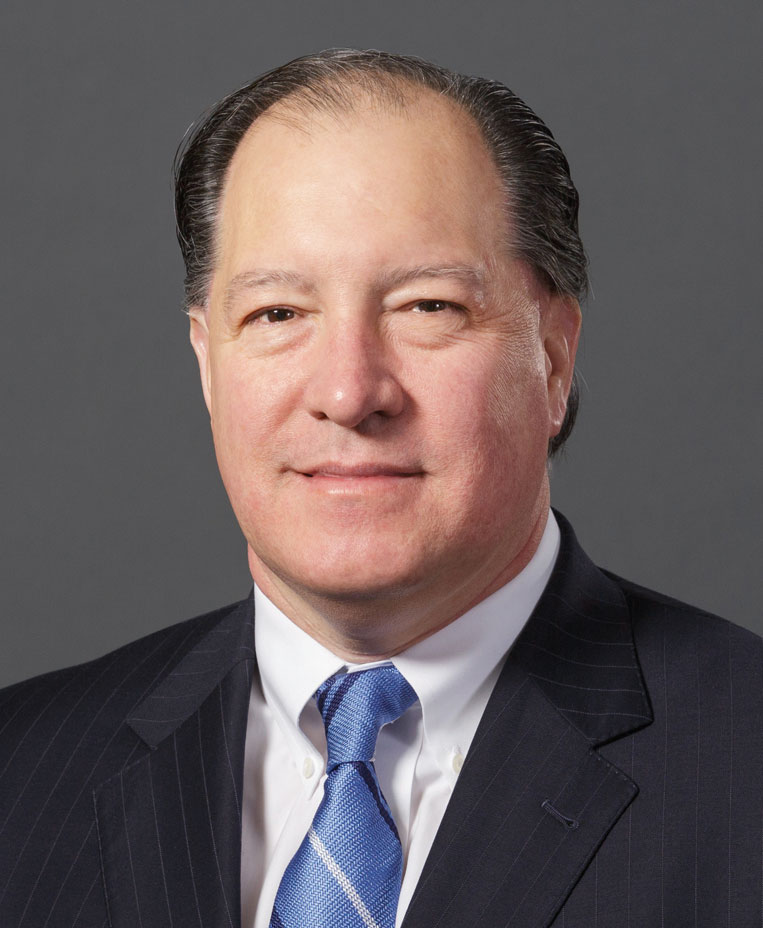
Christopher J. Del Moral-Niles, CFA, joined Associated Bank in 2010 and is currently the Executive Vice President and Chief Financial Officer. He has the overall responsibility for the company’s financial management. He also serves on the executive committee for Associated Banc-Corp. Mr. Niles brings more than 25 years of financial services industry experience to Associated Bank.
Previously, he was the Corporate Treasurer of The First American Corporation and President of First American Trust, FSB. Before that, Mr. Niles served as Senior Vice President and Director of Liability Management for Union Bank, President of UnionBanCal Commercial Funding and as the asset/liability strategist of Union Bank.
Prior to his time with Union Bank, Mr. Niles spent a decade as an investment banker focused on the financial services industry, working primarily on acquisitions, bank capital raising and funding transactions for regional banks and thrifts. Mr. Niles holds an MBA from UCLA’s Anderson School of Management and studied economics at the University of California, Berkeley. He has been a Chartered Financial Analyst — CFA — since 1995. He resides in Green Bay and serves on the Wisconsin Bankers Association board.
In this exclusive 3,638 word interview, Mr. Moral-Niles details the strategy behind creating a profitable, diversified financial services powerhouse in the Mid-West United States.
“We have built a business model around being both a consistent lender into the communities within which we operate and, in many places, being the largest lender. For example, we are the largest mortgage lender in the state of Wisconsin. We beat out folks like Wells Fargo and the online operators. That presence across the marketplace is the distinguishing characteristic of our franchise, along with the fact that we have built a series of specialized industries’ verticals within our bank.”
Insurance is just one of those verticals:
“During the course of the year, we acquired Bank Mutual. And that further cemented, supported and enhanced our franchise across the state of Wisconsin. We also bought Diversified Insurance early in the year and followed that up with Anderson Insurance to grow our franchises in the Milwaukee marketplace.
That Diversified deal complemented our acquisition of Bank Mutual because it bolstered our insurance presence in Milwaukee, where Bank Mutual was based, and Anderson further enhanced our position and franchise both in Minnesota, Minneapolis specifically, but also enhanced our specialization in workers’-comp-related insurance because that was a specialty of theirs.”
Another vertical is lending to the oil and gas industry:
“Two of our directors, in addition to our Chairman, also have oil and gas professional backgrounds, either at Amoco or as oil and gas bankers. So we have got depth at the board and senior management level and were able to hire in teams that had worked previously for our CEO and other organizations. These people in the market understood the products and the customer base and were able to hit the ground running in the marketplace.
We made sure that we are sitting in Houston, which is where you need to be if you are going to be an oil and gas banker.”
Wisconsin is shaping up to be a bellwether state for the repurcussions of the new tax law:
“TWST: Growth in manufacturing in that area of the country certainly would give a lot of people a warm feeling because we don’t often hear enough about this in the U.S. Can you expand and offer some examples of loan types that you find are being needed? What types would make up that 9%?
Mr. Niles: An example is, literally just down the road, one of the first paper mills coming up out of the ground here in more than 30 years. It is about a $0.5 billion project for Green Bay Packaging that involves the building of a new paper mill. It is next to Georgia-Pacific and just down the street from other mills and plants that have been here forever.
The reality is that the Procter and Gamble and Georgia-Pacific plants have been stalwarts of employment here along with Green Bay Packaging for decades, but no one has re-invested in a new plant, in part because it is a pretty high-dollar commitment. Tax reform, credits for producing new jobs that states are encouraging and the reality that finding workers is more challenging are now drivers to investment.
In order to increase production, there is a need to increase the degree of automation and efficiency of the existing work force. This then drives manufacturers to consider significant capital investments and the economics for those capital investments are starting to shape up. They make sense. We are seeing folks who have been on the sidelines, in some cases for years, finally step up and make commitments to build and expand in ways that we have not seen. We are heartened by this and see it as a positive.
Green Bay Packaging is not alone. Our clients look at tax reforms and at the economic environment in such a way as to believe that there is still growth in this economy. If we make the right investments and position ourselves well and build the right efficiencies and automation into our processes, we will be better positioned to sustain and grow our businesses. We will be better positioned to work our way through a downturn. That kind of logic is starting to take hold.”
Get the complete picture by reading the entire 3,638 word interview, only in the Wall Street Transcript.
Perficient (NASDAQ:PRFT) Chairman & CEO Details His 2021 and Beyond Strategy for Building Shareholder Wealth
May 18, 2021
Two Harbors Investment Corp (NYSE:TWO) Grows Book Value and Diversifies Asset Base
June 27, 2013
Mason King of Luther King Capital Makes Banc of California (NASD:BANC) a Top Pick
October 31, 2017
Wisconsin Energy Corp (WEC) Looks Expensive Among Utility Stocks
February 19, 2015